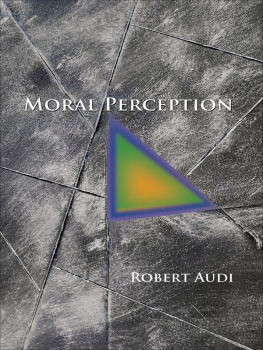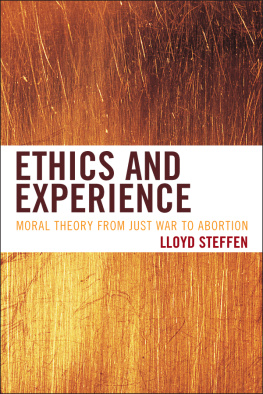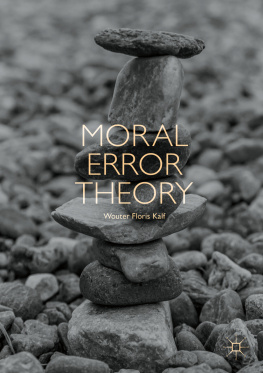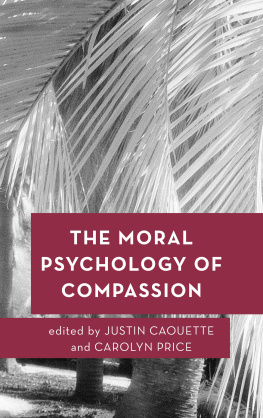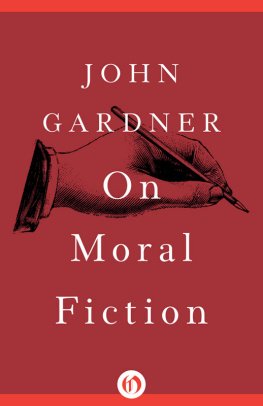
Moral Perception
SOOCHOW UNIVERSITY LECTURES IN PHILOSOPHY
Chienkuo Mi, General Editor
The Soochow University Lectures in Philosophy are given annually at Soochow University in Taiwan by leading international figures in contemporary analytic philosophy.
Also in the series:
Scott Soames, What Is Meaning?
Ernest Sosa, Knowing Full Well
Copyright 2013 by Princeton University Press
Published in association with Soochow University (Taiwan)
Published by Princeton University Press, 41 William Street, Princeton, New Jersey 08540
In the United Kingdom: Princeton University Press, 6 Oxford Street, Woodstock, Oxfordshire OX20 1TW
press.princeton.edu
All Rights Reserved
Library of Congress Cataloging-in-Publication Data
Audi, Robert, date.
Moral perception / Robert Audi.
p. cm. (Soochow University lectures in philosophy)
Includes bibliographical references and index.
ISBN 978-0-691-15648-4 (hardcover : alk. paper) 1. Ethics.
2. Perception. I. Title.
BJ1031.A93 2013
170.42dc23
2012027521
British Library Cataloging-in-Publication Data is available
This book has been composed in Minion Pro
Printed on acid-free paper.
Printed in the United States of America
1 3 5 7 9 10 8 6 4 2
Preface
THIS BOOK WAS PREPARED for the Soochow Lectures in Philosophy and, in an earlier, shorter version, presented at Soochow University in Taipei in March 2011. The Soochow series is intended to stand as a source of continuing contributions to philosophy and a setting for establishing fruitful connections between philosophers in Taiwan and many other philosophers worldwide. Even beyond those connections, the series aims at stimulating interchanges of ideas between philosophers working in Chinese and those working in other languages. With this context in mind, I have selected a topic that spans three very broad areas and should interest philosophers and others working in any of these fields: ethics, both theoretical and practical; epistemology, conceived as the theory of knowledge and justification; and moral psychology, conceived as inquiry in the areas of overlap between philosophy of mind and ethical theory. The book is intended to engage the interests of philosophers and other thinkers working in any of these areas.
Every chapter has been greatly expanded since its partial presentation in Taipei, but I have retained the concreteness and the numerous examples needed for comprehension by an audience that lacked the text. My aim continues to be a high level of readability such that students as well as professional readers can readily follow the argument. Copious notes are included for those interested in certain qualifications or in references to relevant literature, but the notes are not needed for understanding the major points.
The main ideas in the book should be comprehensible to readers who skip or merely consult may certainly be taught on its own by an instructor with an understanding of the work as a whole.
It is appropriate here to say something about the contribution of the book in each of the fields within its scope. Perception is a basic topic. My account of it draws on years of work on the subject but is presented here in a self-contained treatment and with footnotes indicating much relevant literature. This book will show how the account can accommodate the idea that perception occurs in the moral domain. Much will be said about perception in , with many examples drawn from the domain of vision. Perception is not only basic for success in everyday life and scientific inquiry; it is essential for moral knowledge and crucial for cross-cultural understanding. It is the common root that nourishes our cognitive structure; it anchors that structure to the grounds from which truth emerges; and it sustains the vast and various superstructures we build from the foundational materials that perception provides. If there is moral perception, and if some of our sound moral beliefs suitably rest on it, then there is moral knowledge.
.
A central concern of the book is the issue of objectivity in ethics. From that point of view, the influence of emotion on moral cognition is a major topic. A common assumption is that emotions bias us and undermine objectivity. Doubtless they can do this, but I will show how they can also have evidential value and thereby contribute to our moral knowledge and, more broadly, to our ethical sensitivity and to the refinement and justification of various important elements in our moral outlook.
The book does not challenge moral skepticism directly, but if the account of perception and its relation to moral judgment is sound, the common-sense view that we have a good deal of knowledge in ethical matters gains support. Even those who reject that view will be able to see how perception can at least provide some degree of rational support for moral judgment. Intuition can be similarly seen to have evidential value, even if it is not taken to constitute knowledge or to provide evidence sufficient for knowledge. And emotion can be seenat least in people of maturity and discernmentnot as a threat to objectivity but, under many conditions, as a basis for justified moral judgment.
Acknowledgments
THIS BOOK HAS BENEFITED FROM DISCUSSIONS with more people than I can name. These include both philosophers and students of philosophy. For comments on earlier versions of all or part of the book I want to thank Carla Bagnoli, Roger Crisp, Jonathan Dancy, Peter J. Graham, Scott Hagaman, Terry Horgan, Chris Howard, Ralph Kennedy, Justin McBrayer, Hugh McCann, Chienkuo Mi, Walter Sinnott-Armstrong, Ernest Sosa, Pekka Vyrynen, Dennis Whitcomb, readers for the Press, and, especially, Robert C. Roberts and Mark C. Timmons, who both took time to make a great many detailed helpful points.
Discussions with Paul Audi, John Broome, Maeve Cook, Miranda Fricker, the late Peter Goldie, Darcia Narvaez, Derek Parfit, Peter Railton, and Linda Zagzebski have also been of help to me, and I learned much from discussing one or another of the issues with participants in the Soochow Lecture sessions in 2011, the Brackenridge Symposium in 2010 (a conference skillfully organized at the University of Texas, San Antonio by Jill Graper Hernandez and focused on my work), and a seminar at the University of Notre Dame.
The support and advice of my editor at the Press, Rob Tempio, have been invaluable, and I am also grateful for the highly professional editorial work of Lauren Lepow and for help with the index given by Daniel Immerman.
The relation of this book to my earlier work is indicated by various footnotes. None of the chapters is a reprint of any earlier publication, and revisions (sometimes substantial or accompanied by considerable development) have been made in the parts of my previous publications that appear here.
Moral Perception
Introduction
A PERENNIAL QUEST OF PHILOSOPHY is to construct an adequate conception of the human person and to frame sound standards for human conduct. In the domain of ethics, standards of interpersonal conduct are central. Ethical conduct is essential for human civilization, and in our globalized world, with its increasing international interdependence, nothing is more important than universal adherence to sound ethical standards. Is there any moral knowledge that can serve as a basis for such standards? That is one of the broad questions motivating this book.
With the successes and intellectual prominence of modern science, philosophers and many others who think about the status of ethics have been concerned with the apparent disparity between our ways of arriving at moral judgments and our ways of arriving at beliefs and judgments by using scientific methods. A great many contemporary academics and others maintainor simply presupposethat if we have any moral knowledge, that knowledge must be broadly empirical and ultimately amenable to scientific confirmation. This view is implicit in the most common kind of contemporary naturalism. Much could be said about what counts as naturalism, and Science, of course, is taken by naturalists to be the highest authority concerning what the truths of nature are.
Next page
